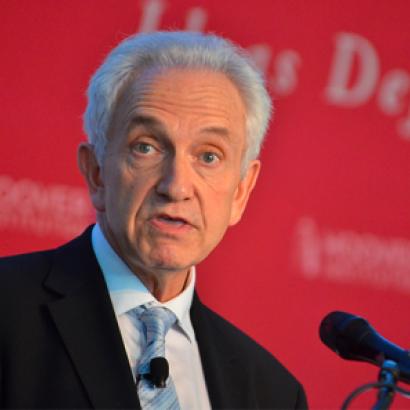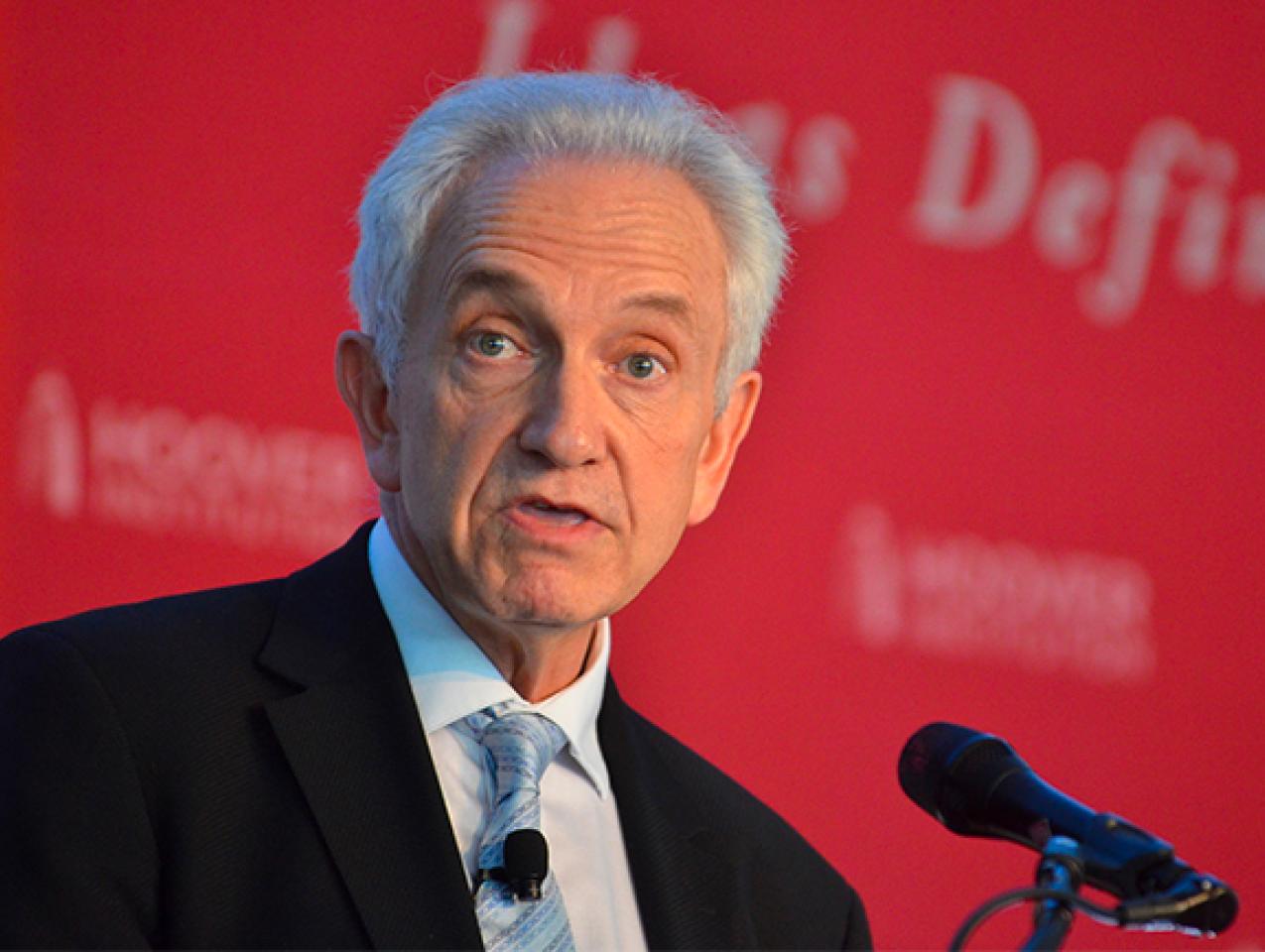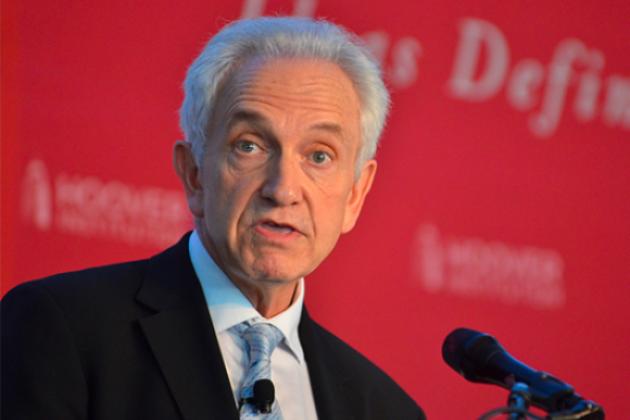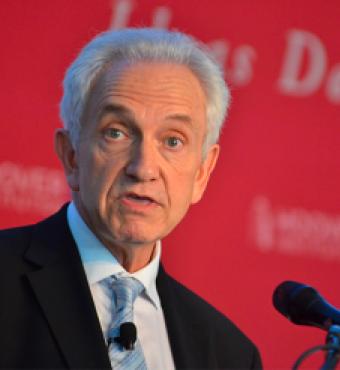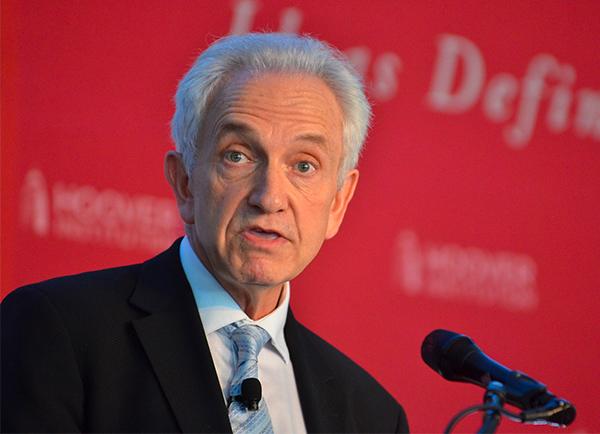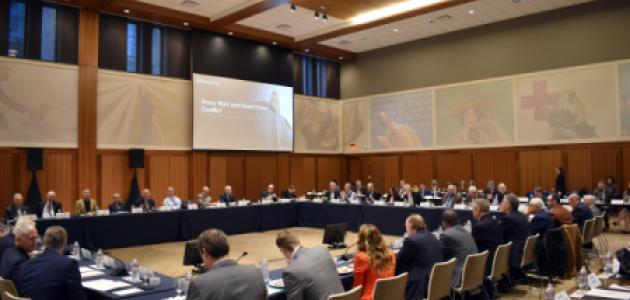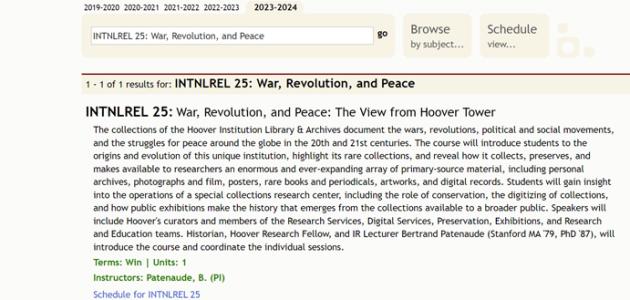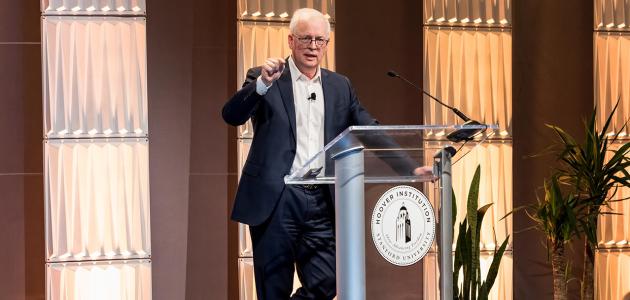
The crisis of globalism, changing views on religion, and Middle Eastern conflicts are driving factors in the rise of anti-Semitism, a Hoover scholar says.
Russell Berman, a professor of comparative literature and a senior fellow at the Hoover Institution, is the co-chair of the Working Group on Islamism and the International Order. He was recently interviewed about the increase in anti-Semitism, particularly in Europe:
What are the historical roots of anti-Semitism?
Berman: The historical roots are deep, going back to antiquity. The Jewish commonwealth mounted considerable resistance against the Roman Empire, and out of that experience a set of anti-Jewish stereotypes developed that were transmitted through Western history. Some claim that anti-Semitism arose even earlier, as an expression of resentment against monotheism. It is noteworthy that outside of the monotheistic cultural world, e.g., in China or India, anti-Semitism is negligible, only an import from Europe. But in the long history since antiquity, a distinguishing feature of anti-Semitism has been its ability to take on multiple and contradictory shapes: animus against Jews because they are viewed as capitalists or as communists, as threateningly aggressive or hopelessly weak, as too international or too particularistic.
What is behind the recent rise of anti-Semitism in the United States and Europe?
Berman: We have been facing a wave of anti-Semitism for at least a decade. The Pittsburgh synagogue shooting last October stands out for its violence, of course, but it took place in a larger context: the shootings at a Jewish school in France in 2012, attempts to storm a synagogue during anti-Israel riots in Paris, attacks on Jewish individuals in the streets of Berlin, and the centrality of anti-Semitism in the political profile of the leader of the British Labour Party, Jeremy Corbyn. What drives this current resurgence? I see at least three framing factors.
The 2008 financial crisis can be taken as a marker of the crisis of globalization. The utopian aspiration that the world would move smoothly into an integrated international order has come to an end. One element in the discourse of anti-Semitism is the imagery of Jews as always homeless, wandering and therefore international. That stereotype has reemerged as a way to misrepresent the obsolescence of globalism and produces anti-Semitic discourse, especially on the far right and far left: the international Jew as the enemy in an era in which international structures are growing objectively weaker.
In addition, the status of religion in public life is changing around the world. Despite predictions of global secularization, we see a resurgence of identifications with faith communities—Pentecostals, Evangelicals, but also Hindu nationalism, Islamic neo-traditionalism and of course Jewish orthodoxy as well. These revivals of religion have, however, elicited an anti-religious opposition, a general hostility toward all markers of faith. For example, an anti-Mormon rhetoric was already mobilized against the Romney presidential campaign. We have also seen anti-Catholicism seep into public life, for example in the recent reporting around the incident in Washington, DC, concerning students from a Catholic high school. Anti-Semitism fits this pattern: animosity to a sign of religious identification. In this context, one should also mention a generalized suspicion of Islam, i.e., the confusion of Islam as religion with the jihadist extremism of a fringe. But most violence against Muslims is part of the intra-Muslim conflict between Sunni and Shia rather than a secularist rejection of religion (one exception: the emphatic secularism in France as a motivation for the ban on the head scarf).
There is also an anti-Semitic spillover from the Middle East conflict. This highlights the impossibility of separating anti-Zionism from anti-Semitism. Attacking Jews in the United States or in Europe for events in Israel amounts to blaming Jews in general for Israeli politics. That is anti-Semitic, clearly. But there’s more to this matter. Jewish communities in the United States tend to be politically liberal and often critical of the Israeli government (although supportive of Israel’s right to exist). Stronger political support for Israel comes from the much larger Christian Zionist community, by no means exclusively Evangelical. Yet while the anti-Israel left, the supporters of boycotts and the like, have a habit of demonstrating outside of Jewish institutions, including synagogues, I have never heard of an anti-Israel demonstration outside of a pro-Israel church. Evidently, attacking Israel is only worthwhile if it includes an attack on Jewish, not Christian supporters. That’s evidence of the anti-Semitic character of contemporary anti-Israel activism.
Why does anti-Semitism seem prevalent among the extreme left and extreme right of the political spectrum—or is it becoming more mainstream?
Berman: In many countries we are seeing a breakdown of traditional political-party structures and the rise of the extremes, but also the adoption of extremist positions by the mainstream. The most notable example is the transformation of the Labour Party in the United Kingdom. Given the political confusion around Brexit and Theresa May’s weak standing, we should not discount the possibility of Corbyn’s becoming prime minister—he would be the first western European head of government tied consistently to anti-Semitism since the end of the Second World War. Germany represents an interestingly different case. Chancellor Angela Merkel has been outspoken in her criticism of anti-Semitism and in her rhetorical support for Israeli security. However, her government has simultaneously supported maintaining strong ties to Iran, which is the most prominent anti-Semitic power today with its continuous Holocaust denial and its calls for the elimination of the State of Israel—along with its favorite invocation of “death to America.” The sincerity of Germany’s rejection of anti-Semitism contrasts with its willingness to give Iran a pass, presumably because of the prospects of commercial relations with Tehran.
Is anti-Semitism a problem on college campuses, and if so, what is happening in this regard?
Berman: College campuses ought to be spaces for free discourse, and the vast majority of scholars and students go about their business of teaching, learning, and research. But there are fringes that misuse the academy in order to hawk their wares. While both ends of the spectrum are guilty, the main motor of anti-Semitism on campuses today comes from the Boycott, Divestment, and Sanctions (BDS) movement, with its goal of ending the State of Israel, which means rendering about half of world Jewry—Israel’s Jews—stateless. It is unlikely that BDS will succeed in that goal, but in the meantime, it has succeeded in producing a hostile environment for Jewish students on some campuses.
Are there public policies that are needed now to address anti-Semitism in the United States?
Berman: Attacks on Jews, Judaism, and Jewish institutions ought to be accorded the same attention given to attacks on others: equal protection by the state. However, in this age of increasing divisiveness, some voices advocate prohibitions of anti-Semitic or other racist or hateful speech. I worry about going down that route. The country seems to be obsessed currently with the problem of “fake news.” The only possible outcome of that discussion will be a system of censorship in which some offices, public or private, will decide which news should be permitted and what language should be disallowed. We should not careen into government control of speech, even if that means putting up with speech we abhor. That’s the price of liberty.
MEDIA CONTACTS:
Clifton B. Parker, Hoover Institution: 650-498-5204, cbparker@stanford.edu







